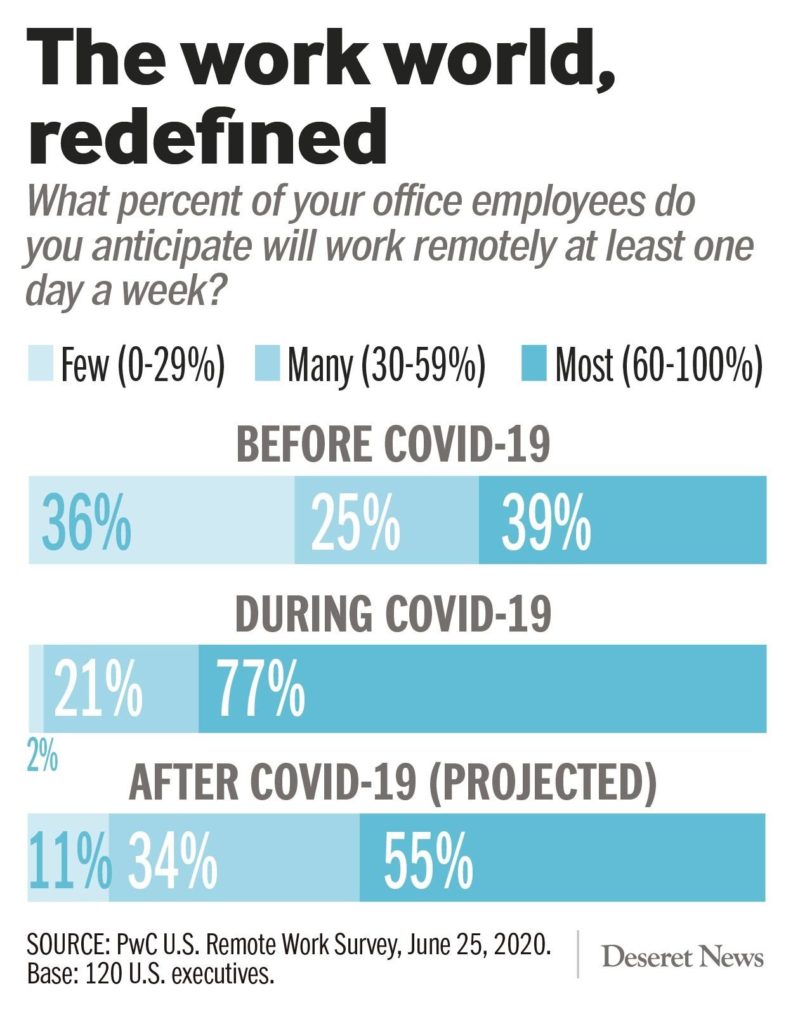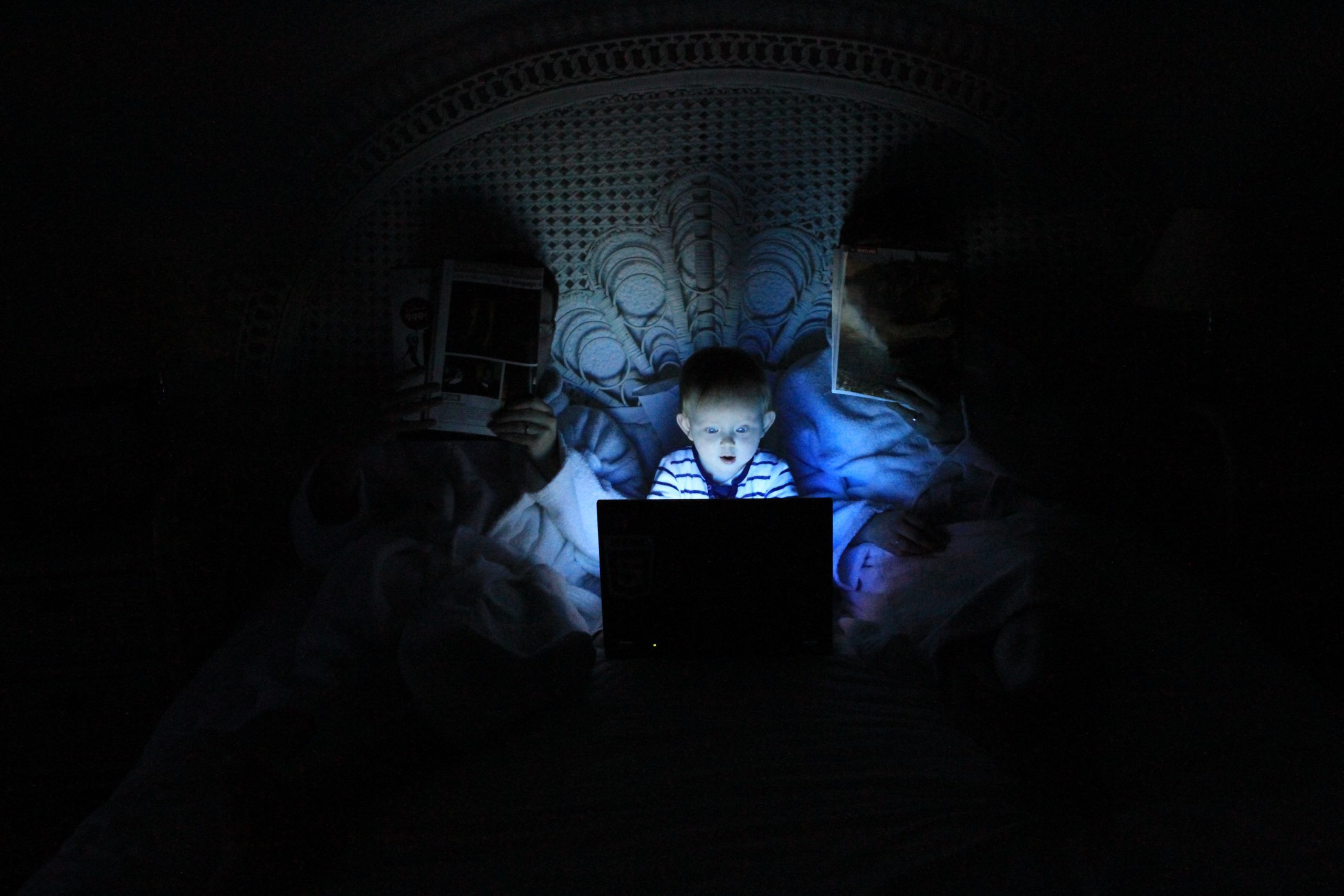As COVID policies either pushed workers toward telework or unemployment, it is important to understand the trade-offs and incentives that are now at play in this new working environment. According to a recent paper by Darja Reuschke and Alan Felstead, people’s preference to work from home is steadily on the rise in the UK. This trend is not only present in the UK, but is clearly happening in America as well. In a recent Deseret News article they found that, for individuals that are still employed, there seems to be a shift toward wanting to work from home, as described in Figure 1.

Not all professions are able to work from home, as noted in the articles, in Figure 1 from the Salem Center COVID Website, and in a recent paper by Egor Malkov. In the following articles, there is also a debate that the shift toward remote work will “lead to ghost towns”.
1. Remote work could lead toward “ghost towns”
2. Rumors of “ghost towns” are overblown
One concern that remote work will decrease the defensive ability of firms to secure their workers and systems. The prime example of this is the Twitter hack in which a Florida teen was able to pose as an IT department employee and trick people into giving up credentials.
A couple of trade-offs worth looking at:
• Longer Workdays
• Privacy vs Contact Tracing
• Effects on Households with Children

For more information on hacking and policy trends, visit the Salem Center’s Cybersecurity Policy Program to follow our upcoming opeds, as well as learn about our speaker series, courses offered, and current research.
For more information on the Salem Center’s COVID research and data work, visit the Salem Center’s COVID site. This project has benefited from the wonderful and dedicated help from the research assistants in the Policy Research Laboratory.




